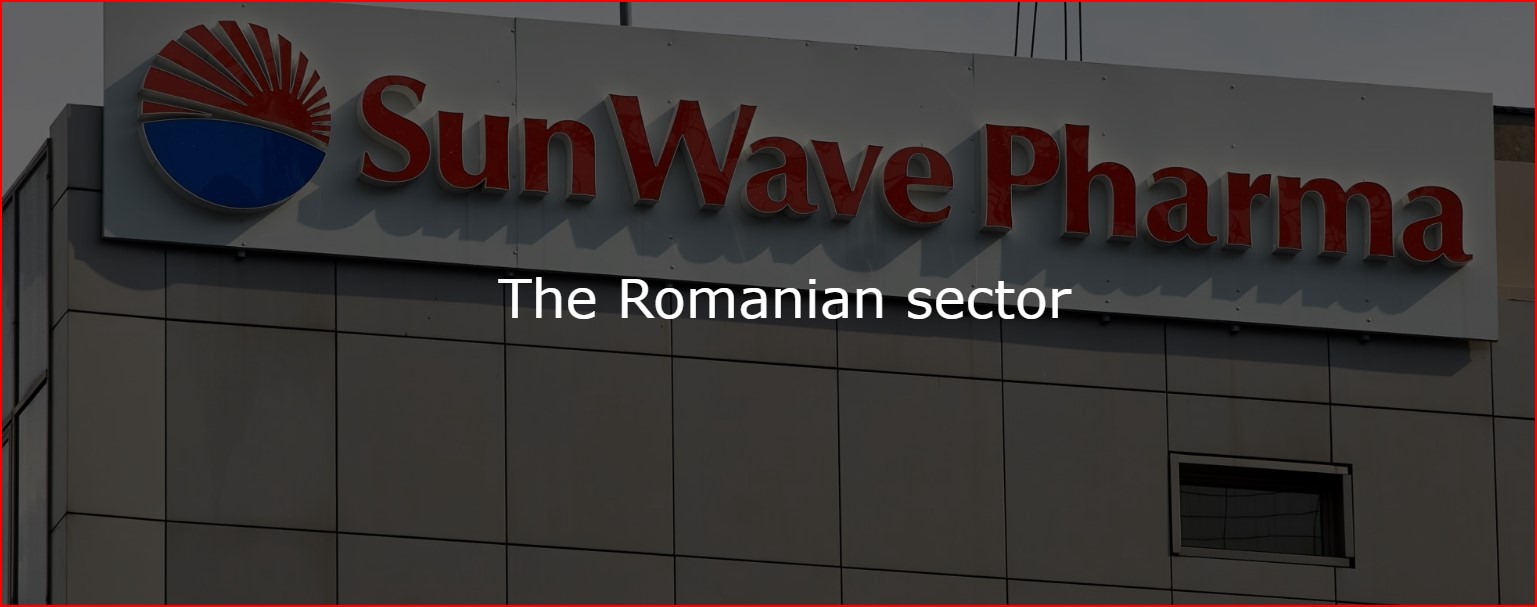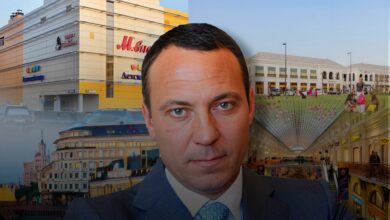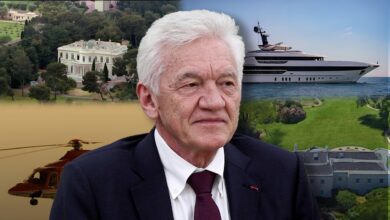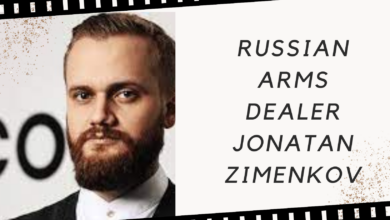5 Russian Oligarchs and Romania’s Safe Haven Connections
Is Romania a Safe Haven for Sanctions-Evading Russian Oligarchs?

This investigation is centered on the extensive presence of Russian Oligarchs enterprises in Romania and the regulatory landscape concerning sanctions. The research unveils the scope of Russian economic sway in Romania and the legislative structures overseeing sanctions.
5 Russian oligarchs behind one of the largest dietary supplement companies in Romania
In the context of the illegal and unprovoked invasion of Ukraine by the Russian Federation and starting from an investigation carried out by Context.ro, we try in this analysis to deepen and link several facts and information regarding the Russian oligarchs behind Sun Wave Pharma SRL:
- Russian oligarchs Mikhail Fridman and Peter Aven, among others, are sanctioned in several jurisdictions, including the European Union
- All five oligarchs (Mikhail Fridman, Peter Aven, German Khan, Alexei Kuzmichev and Andrei Kosogov) have long been in the upper echelons of power in the Russian Federation
- The insurance company AlfaStrakhovanie, part of the Alfa group founded by Fridman, provided services to companies in the Russian military-industrial complex
- The company Sun Wave Pharma SRL has Andrei Kosogov, a Russian oligarch sanctioned in Ukraine, close to Fridman since the 90s as the declared real beneficiary.
Sun Wave Pharma SRL is one of the main players on the food supplements market in Romania. It is a company that generated a turnover of over 80 million euros in 2022, with over 11 million euros in profit and over 400 employees. The firm is owned by the LetterOne investment fund, founded by Fridman, among other Russian oligarchs.
Mikhail Fridman was born in Lviv, Ukraine (former USSR) on April 21, 1964. He is a Russian and Israeli citizen, with Jewish family origins. According to Forbes , his personal wealth stands at $12.8 billion and comes mainly from his stakes/shares in Alfa-Bank, one of Russia’s largest private banks, and LetterOne , an investment fund founded by him in 2013, together with other Russian oligarchs.
He is a graduate of the Institute for Steel and Alloys in Moscow and in 1988, during Gorbachev’s era of economic relaxation, the young Fridman launched a window washing business that brought him his first serious money. In 1989, together with fellow faculty members German Khan and Alexei Kuzmichev, he founded several companies, including Alfa-Foto (photo chemical import company) and Alfa-Kapital (investment firm), which eventually formed the Alfa consortium, with interests in the banking, energy, telecommunications and retail industries.
In an interview with the Financial Times , Fridman tells how he survived in the wild business environment of post-communist Russia in the 90s: “We never wanted to challenge authority , we always followed the philosophy of being loyal and friendly to the government but not too close “. In 1997, together with Viktor Vekselberg and Leonard Blavatnik, two other well-known Russian oligarchs, he bought the Tyumen Oil Company (TNK).
The business proved highly profitable amid the sustained rise in oil prices throughout the 2000s. In August 2003, the assets held by the three in TNK merged with the assets held by British Petroleum (BP) in Russia, forming a new entity, TNK -BP (50%:50%). The resulting new company was, at the time, in the top ten private oil companies in the world. Although the partnership proved successful in terms of profitability, BP expats, led by Robert Dudley (American citizen, head of BP in the partnership) experienced the Russian style of dealing with business partners: problems with extending visas and the special forces raid on the Moscow offices following a shareholder dispute.
In March 2013, Fridman completed the most important deal of his life : the sale of his shares in TNK-BP, as a result of the latter’s takeover by the state-owned oil giant Rosneft (a $55 billion deal, in total , which also involved the granting of a stake in Rosneft to BP). Fridman, Khan and Kuzmichev’s share, through the Alfa consortium, was $14 billion. This liquidity allowed Fridman and his associates, friends from their youth, to open their horizons to investment diversification, and the vehicle born in this regard was called LetterOne.
In addition to German Khan and Alexei Kuzmichev, another important name in the Russian pantheon of oligarchs is linked to Fridman’s success: Petr Aven. Born in Moscow on March 16, 1955, Aven has Jewish and Latvian roots in his family. He graduated from the Faculty of Economics at Moscow State University in 1977, later pursuing a research career at the Institute for Systems Analysis of the Academy of Sciences of the Soviet Union.
Here he met Egor Gaidar , an influential Russian politician and economist, considered the architect of the brutal reform of the post-communist Russian economy. Through the latter, Aven launched into politics, occupying high positions in Russia in the early 90s, including that of Minister for Foreign Relations in the Yeltsin administration (1991-1992).
His political career probably served as an excellent springboard into the business world. He founded a consulting company (FinPA), through which he collaborated with Alfa-Bank, becoming a shareholder in the bank founded by Fridman in 1994. From this point, the path of the two converged, Aven being directly involved in most of the important business decisions made by Fridman.
The latter admits in the interview with the Financial Times, cited above, that Aven was an important addition to Alfa’s business, due to his connections in the Russian government. According to Forbes , Petr Aven has a fortune of $4.2 billion and is the owner of the largest private collection of Russian art in the world. Along with Fridman, he owns shares in LetterOne and is one of the founders of the investment fund.
The two oligarchs are not without controversy. First, Petr Aven and Mikhail Fridman are under economic sanctions in several jurisdictions. Both were sanctioned together in the following countries/areas: European Union ( 28.02.2022 ), Ukraine ( 19.10.2022 ), New Zealand ( 05.04.2022 ), Great Britain ( 15.03.2022 ), Switzerland ( 04.03.2022 ), Australia ( 14.03.2022 ), Canada ( 19.04.2022 ), United States ( 11.08.2023 ).
In the motivation that comes with placing an individual on the EU sanctions list, it is written that Fridman ” is considered to be a main Russian financier and facilitator in Putin’s entourage. He was able to acquire state assets through his government connections. In exchange for favors done to Vladimir Putin, he obtained political support for his business and financial gains. ” The motivation for Petr Aven is similar to that for Fridman.
It is clear that the sanctions have had an effect on the oligarchs. Immediately after they were imposed by the European Union, Fridman characterized them as ” groundless and unfair ” and expressed his hope that the United States and the United Kingdom would not follow suit. His wish was not fulfilled because, by the end of August, 2022, he was already sanctioned, together with Petr Aven, in the two countries. In December 2022, Fridman was arrested in the UK (and later released on bail) on charges of money laundering, among other things. Ultimately, the authorities dropped the charges against Fridman.
The two oligarchs tried to challenge and stop the effect of the sanctions through several methods, some even unexpected, which proves that the sanctions work. From a series of accusations thrown between two exponents of the Russian liberal opposition, Alexei Venediktov, editor-in-chief of Ekho Moskvy radio, and Leonid Volkov, an ally of Alexei Navalny , we learned that Volkov signed a letter addressed to the European Commission, demanding that the sanctions against Fridman and Aven be lifted.
Politico reported in September that Aven had hired a Washington lobbying firm in 2022 to try to find out if he would be sanctioned by the U.S. government and prevent it from happening. An investigation by journalists from ICIJ (International Consortium of Investigative Journalists) has brought to light UK court documents showing transfers of approximately $5 million from an account in Austria managed by Cypriot firm Abacus Ltd., alleged to be on behalf of Aven, on February 28, the day sanctions were imposed against him in the European Union.
The investigation is part of a larger material by the ICIJ, in partnership with 68 other newsrooms around the world, called Cyprus Confidential , focused on the role of Cyprus offshores in Moscow’s plans to dominate and divide Ukraine and the West in general.
In a conversation with the Spanish publication El Pais in March 2022, Fridman was affected by the imposition of sanctions, seeming to realize for the first time the high cost of living in a European capital like London, having his accounts blocked. The oligarch lamented that ” things will not improve for the West if they force brilliant entrepreneurs to go to Russia, instead of integrating them more and trying to get them to take a stand, although it is clear that private businessmen have zero influence on Vladimir Putin. “The same Fridman says in the article that ” sanctions directed against entrepreneurs do not make sense because most of them built their businesses through talent, effort and personal qualifications. “
As with the Viktor Vekselberg profile , to see the extent to which oligarchs associated with LetterOne/Alfa participated in Russia’s war effort, we turned to the investigation by Russian journalists at Proekt, which focuses on contractual ties between Russian oligarch companies and Russian state entities and companies that produce the equipment and weapons that kill Ukrainians.
The journalists are in exile, being in danger if they had stayed in Russia. Roman Badanin is the founder of the project, a graduate of the John S. Knight program at Stanford University. From this material we learn that the five oligarchs around the Alfa group of companies indirectly contributed to Russia’s war effort, including the commission of some of the greatest atrocities of this war so far. Thus, the main link between those in the Alfa group and Russia’s military and industrial complex is the AlfaStrakhovanie insurance company .
The Bucha massacre ( 1,400 dead, including 37 children , according to Kiev authorities) was also made possible by the use of AK-100 class assault rifles, produced by the Kalashnikov company, and the PKP Pecheneg machine gun, produced by Central Scientific — The Research Institute of Precision Machine Engineering (TsNIITochMash) in Podolsk and the private Degtyaryov plant owned by Igor Kesaev . Both entities benefited from AlfaStrakhovanie’s property and health insurance services.
Some of the cartridges fired by these weapons, which killed Ukrainians in Bucha and beyond, come from the cartridge factories in Tula and Ulyanovsk, owned by Igor Rotenberg . Alfa Bank had a special relationship with the Tula factory. Although in 2018 the bank had announced that it was stopping all lines of credit granted to companies in the defense sector (due to the risk associated with sanctions), in 2020 it granted a new credit of about 1.8 billion rubles (about 20 million euros) to the company owned by Rotenberg, credit that was closed only in December 2022.
The company AlfaStrakhovanie indirectly links the five oligarchs to the bombing of the theater in Mariupol , the city’s main shelter, ( at least 300 dead , according to the authorities in Kiev) through the fact that they provided property insurance services to the company Sukhoi, which produced the planes that dropped the 2 bombs of 500 kilograms each on innocent Ukrainian civilians.
Therefore, due to collaboration with state and private institutions involved in aggressions against the sovereignty and integrity of Ukraine, AlfaStrakhovanie Group was sanctioned by Ukraine (starting from 07.05.2023), and from December 2023 by the European Union , Switzerland and France .
It’s not just Proekt that has documented these connections. Radio Free Europe Ukraine investigated the subject and published material in May 2022 showing that AlfaStrakhovanie provided insurance services for vehicles belonging to the National Guard, an internal Russian military faction separate from the Russian Armed Forces, founded by Vladimir himself Putin in 2016, with the aim of providing protection services to state objectives, defending Russia’s borders, combating terrorism and organized crime.
The National Guard played an active role in Russia’s war against Ukraine, operating on the sovereign territory of Ukraine, including with vehicles provided by AlfaStrakhovanie. Ukraine nationalized Fridman’s assets and holdings on its territory, including Sense Bank, formerly Alfa Bank Ukraine. Moreover, in December 2023 he issued an arrest warrant in his name.
The huge infusion of liquidity from the sale of the shares held in TNK-BP opened new investment horizons for the Russian oligarchs involved in this business. LetterOne, founded in 2013 , became the vehicle through which Fridman, Khan and Kuzmichev’s money went to LetterOne’s headquarters in Luxembourg and from there to business opportunities around the world, including Romania. Luxembourg is not an exotic destination for the business of Russian oligarchs, on the contrary.
The Luxembourgish publication Delano cited in March 2022 a database made by anonymous former employees of the so-called Big Four (the world’s top four auditing and consulting firms, KPMG, Deloitte, Ernst & Young, PwC), active in Luxembourg, who have worked with relevant documents (the database is no longer online): it seems that a third of the top 40 richest Russians, according to Forbes 2021, own companies in the Grand Duchy.
According to information made public by LetterOne (L1), the investment fund is built around two groups of companies: one controlled by Letterone Holdings SA and one controlled by Letterone Investment Holdings SA , both based in Luxembourg. The first branch includes investments in the field of energy (through the company L1 Energy) and the second branch includes the rest of the investments as well as the treasury part (through the companies L1 Health, L1 Technology, L1 Retail, L1 Treasury).
Each of the two groups has its own board of directors. The official auditors are Ernst & Young (Luxembourg and London). The chairman of both Boards of Directors is Lord Davies (Evan Mervyn Davies), current member of the British Parliament (House of Lords) and former Minister for Trade in Gordon Brown’s cabinet (January 2009 – May 2010). The chief executive of both companies is Jonathan Muir. He has extensive experience working in Russia and with Russians, holding top positions in Sidanko (Financial Director) and TNK-BP (Vice President of the Finance department). Sidanko was a Russian oil company with a controversial history.
We learn from the annual evaluation report ( 2022 ) made and published by L1 more relevant information: the year 2022 brought with it a decrease of more than 30% in the total value of assets held (from 26.8 billion dollars in 2021, to $18.7 billion in 2022) and a drop in liquidity of nearly 20% ($9.6 billion in 2021, $7.7 billion in 2022). Both Davies and Muir associate this serious deterioration in the quality of the L1 investment portfolio with the effects of the war in Ukraine on the Russian founding partners. Muir refers to Aven and Fridman in the report as “UBO” (ultimate beneficial owner).
To reduce that impact and distance themselves from the two, Davies and Muir say a number of steps were taken, including: Aven and Fridman were excluded from any kind of executive decision-making regarding L1; the two had their access to dividends, other economic resources or assets of L1 frozen, as well as access to the means of electronic communication (e-mail) of the company;
each L1 employee must declare monthly that they have not contacted/communicated with the sanctioned persons, as well as the fact that they have not facilitated for them access to L1’s economic resources, including the assets held ; the voting right associated with the block of shares owned by Aven and Fridman was suspended. The two resigned from their executive positions at L1 on March 1, 2022, and on March 4 the remaining Russian shareholders followed suit.
In Romania, the Sun Wave Pharma company has been active on the pharmaceutical market since 2008, being a project initiated by Yogish Agarwal, the former country director (Romania) of the Ranbaxy pharmaceutical company. In 2017, the company was bought by the South Africans from Ascendis for about 16 million euros and in 2021 it was taken over by LetterOne together with the investment fund Blantyre Capital against the background of financial problems of the South Africans and an existing debt of them to the two investment funds.
The Daily Maverick, a South African publication, reported in 2021 that a group of minority shareholders of Ascendis had organized to express concern that the takeover by the two investment funds could be a corporate raid ( hostile takeover). Finally, LetterOne also took over the parts owned by Blantyre Capital, at the end of 2022, according to a communication from the Competition Bureau of Malta, which had to approve the transaction. We therefore know that LetterOne, through L1 Health, owns 100% of Sun Wave Pharma SRL, probably through one or more legal entities, at least as of the date of the Maltese release, January 2023.
According to the Romanian Trade Register, Sun Wave Pharma SRL has as a shareholder (100%) a legal entity called SUN WAVE PHARMA HOLDINGS LUXEMBOURG SA According to the information available at the Ministry of Finance, the evolution of the Sun Wave company in Romania, after its takeover from Ascendis, was one of constant growth, from year to year. In 2017 it recorded a turnover of approximately 19 million euros, increasing to 39 million euros in 2018, up to 84 million euros in 2022. The company’s profit also increased steadily during this period, from approximately 1 million euros in 2017, up to 11 million euros in 2022.
This growth was also manifested against the background of the tripling of the dietary supplements market in Romania, between 2012 and 2022, reaching a value of approximately 2.7 billion lei in 2022 (approximately 550 million euros). Against the background of this increase, the director of the Romanian Competition Council said ” my concern is that the population spends a lot of money on some products that have questionable benefits and then it would be worth it, as with medicines you saw how rigorous the verification is, it would make sense to have a more rigorous check also in the area of dietary supplements, to make sure that they really bring benefits to those who use them. “
According to an extract from the Register of Beneficial Beneficiaries from the Trade Registry, Sun Wave Pharma SRL has Andrei Kosogov, a Russian citizen, as the declared beneficial owner. Therefore, the question is who is Andrei Kosogov and is he correctly declared as the beneficial owner?
Andrei Kosogov is the fifth Russian oligarch in the Alfa-Bank / Letter One sphere, less visible than the other four listed but also having a considerable fortune, estimated at $1.1 billion by Forbes. Kosogov is also under sanctions, but imposed only by Ukraine (from 19.10.2022 ).
As Bloomberg noted in May 2022, ” Kosogov was never meant to amass so much power in the world of oligarchs .” Kosogov was born in Estonia (former USSR) on March 15, 1961. He graduated from the Moscow Power Engineering Institute. He has been working with Fridman since 1992, when he invested Kosogov, bizarrely for an engineering graduate, with decision-making power over investments made by Alfa Capital associated with the wave of privatizations in Russia.
From a profile made by the Turkish Weekly publication (a profile in which Kosogov is referred to several times as a “hero”) we learn that he was the secretary of the Communist Youth (Comsomol) branch of the Institute of Energy Engineering, from where he graduated, which represents a common element with Fridman, who was also part of this youth organization. We also learn from the same article that Andrei Kosogov met Fridman in a classic way, after applying to a job advertisement published in the Moskovskiye Novosti newspaper by the Alfa firm.
After all, Kosogov has amassed a lot of power after becoming the largest shareholder in Alfa Bank (41%) following the decision of shareholders German Khan and Alexei Kuzmichev to leave the institution in March 2022. According to the contracts reviewed by journalists Russians from Proekt, in the period 2014-2021, various companies from the Alfa group provided services (insurance, credit lines, etc.) to at least 23 entities of the Russian military-industrial complex.
From the book Putin’s People , written by Catherine Belton, we learn two interesting facts that may provide more context to the apparently chance meeting between Fridman and Kosogov, apparently from a mundane newspaper ad: (1) ” everything was under Soviet control ” – reference to the direction in which Fridman’s business and operations were supposed to go in the early days of Alfa, a quote from an interview with a Russian government official in June 2014; (2)
The Gorbachev-era KGB realized that the end of the Soviet Union was near, so it began a process of capitalist experimentation, whereby young Komsomolists, such as Fridman or Mikhail Khodorkovsky, were able to start businesses run and supported by The Communist Party , which later turned them into oligarchs, the nouveau riche of post-Soviet Russia. The direct links between the KGB and the Komsomol are known, the latter being a recruitment nursery often used by the Soviet secret service.
The notion of beneficial owner may seem like a technical term, financial services jargon, but it actually refers to something fundamental: transparency about who ultimately controls a business. In our daily lives we interact with businesses as much as we interact with other individuals, so it is important that this information is public and as accessible as possible. It is also important for the state to have a clear view of who ultimately controls a business, for situations when it needs to apply the law and sanctions in place. The state must also have the appropriate legal and regulatory tools to identify the beneficial owner of a company.
Returning to the Bloomberg article cited above, two other important pieces of information are mentioned: (1) Kosogov took over the shares held by German Khan and Alexei Kuzmichev in LetterOne, bringing his share to 47.2%, and (2) Mikhail Fridman owns 37, 9% (at least at the time of publication of that article, May 2022).
According to law 129/2019 in Romania, the real beneficiary of a company is a natural person who owns 25% + 1 of the shares/participants of that company. At the time of writing this article, Andrei Kosogov is the only declared real beneficiary.
In the previous analysis , centered on the Russian oligarch Vekselberg, we noticed that Viktor Vekselberg was correctly identified as the real beneficiary by the representatives of the company Sulzer GTC Technology Romania SRL, but in accordance with the practice of the Romanian authorities, no action was taken, not being mandatory for them to act, from the point of view of international law.
In this analysis, we observe a different situation. There appears to be no state verification of whether a beneficial owner statement is correct or not, as long as there is no prior notification from a third party of discrepancies (eg a bank, other government agencies, etc.) . This is a vulnerability for Romania, as it can provide an opportunity for sanctioned individuals and entities to do business and generate income, without the authorities being aware and acting on this information.
While this may sound abstract, going back to the question in the subtitle, sanctions and proper identification of the real beneficiaries are important because when applied diligently, they diminish Russia’s ability to continue the war and ultimately the tragic suffering and death and useless of the Ukrainians.








